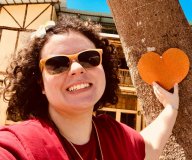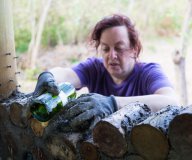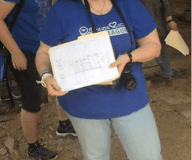Written by volunteer Deidre Slingerland:
Si crees y te esfuerzas, todo es posible. If you believe and you try, all is possible.
It was a crazy idea, really. An idea that fellow Dreams 2 Acts volunteer Brittany Badami and I threw around several times, beginning with an evening under the stars in that beautiful city we have come to call home. We don’t use that term lightly. The idea: “What if we go to Nicaragua this summer?”
What if we did?
This is the story of the best six weeks I have ever had. It’s a story of laughter and tears and unity and overcoming circumstance. It’s a story that proves the opening line of this blog: All is possible.
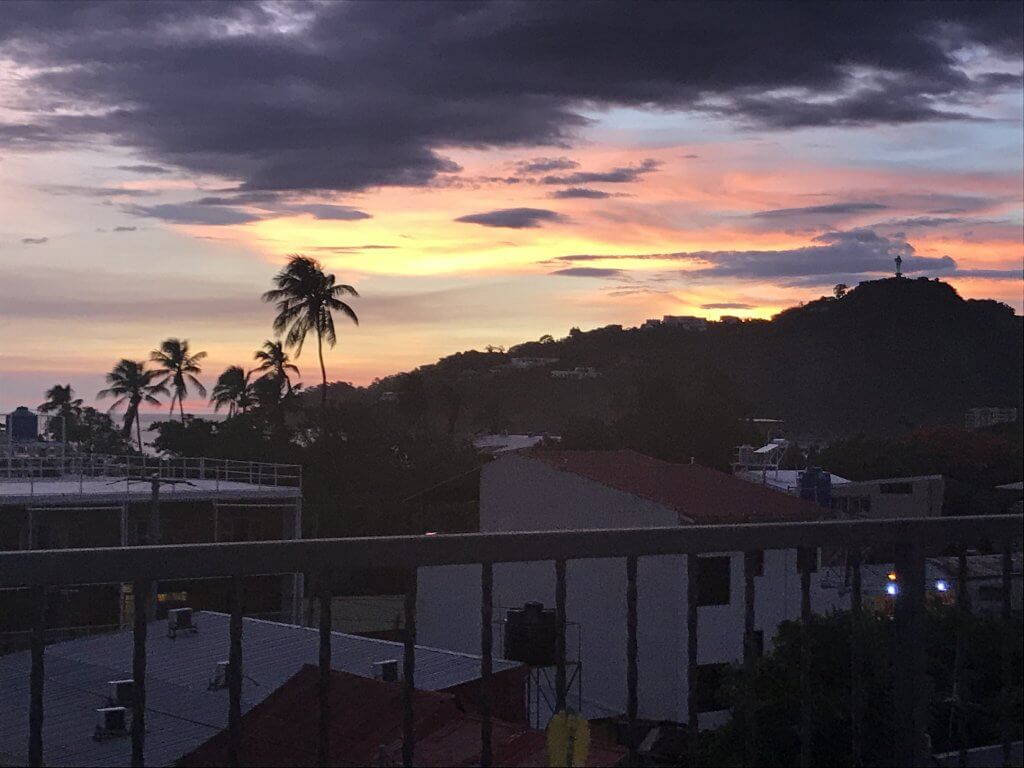
We were lucky enough to have this incredible view of the sunset from our balcony every night.
Nicaragua is a country of wonder, and every week there brought some new, amazing adventure. Every weekend brought a new parade, new festival, and a new reason to celebrate life.
Our first few days there were not without a few hurdles. On the third day of the trip, the unlikely happened: I was stung by a stingray. I could go on and on about the pain that followed, but got through it—I nursed a hole in the bottom of my foot for over a month, but it never got infected. Instead, it gave me time to open my eyes to what Nicaragua was really all about, and what it had to offer.
Somehow, the constant parades each weekend never got old. Wherever I was in the apartment, as soon as I heard the telltale sound of brass in the distance, I sprung up and ran to the balcony. Latin American bands and dancers and singers quickly made me forget my injury. I watched. I participated. By the end of the six weeks, we joined every parade we saw. And we were welcome.
Our Spanish teacher put it this way: “People here are always smiling because you can lose your life in a second.” People smile on the street, people sing while they work, people put their very spirit into everything that they do.
One evening, our street began to fill with vendors. A concert stage went up a block away, in the street in front of the church. For some reason, I decided that this would be the perfect time to go get some fries. In front of the church, we sat down. A symphonic band started to practice, and eventually, we found ourselves in the middle of four hours of church service—outside. The event ended with the most intense firework display I had ever seen; I had to put my sunglasses on because the shimmering explosions were so close it hurt my eyes.
When we got up, we assumed it was time to go home. Nope. As we walked toward the apartment, we ran into Reynaldo, the English teacher from the Free High School. He took us under his wing and guided us through five more hours of celebration. We attended a concert in the streets and danced until 3:30 a.m. We celebrated in true Central American style, and I felt more alive than I had in my entire life.
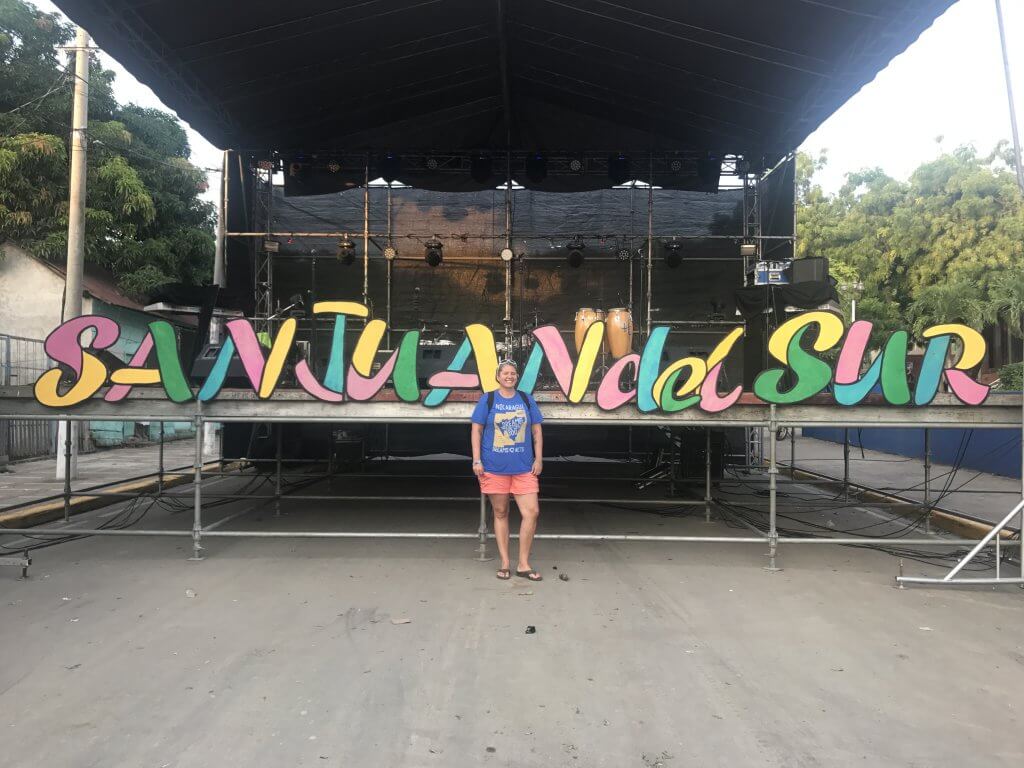
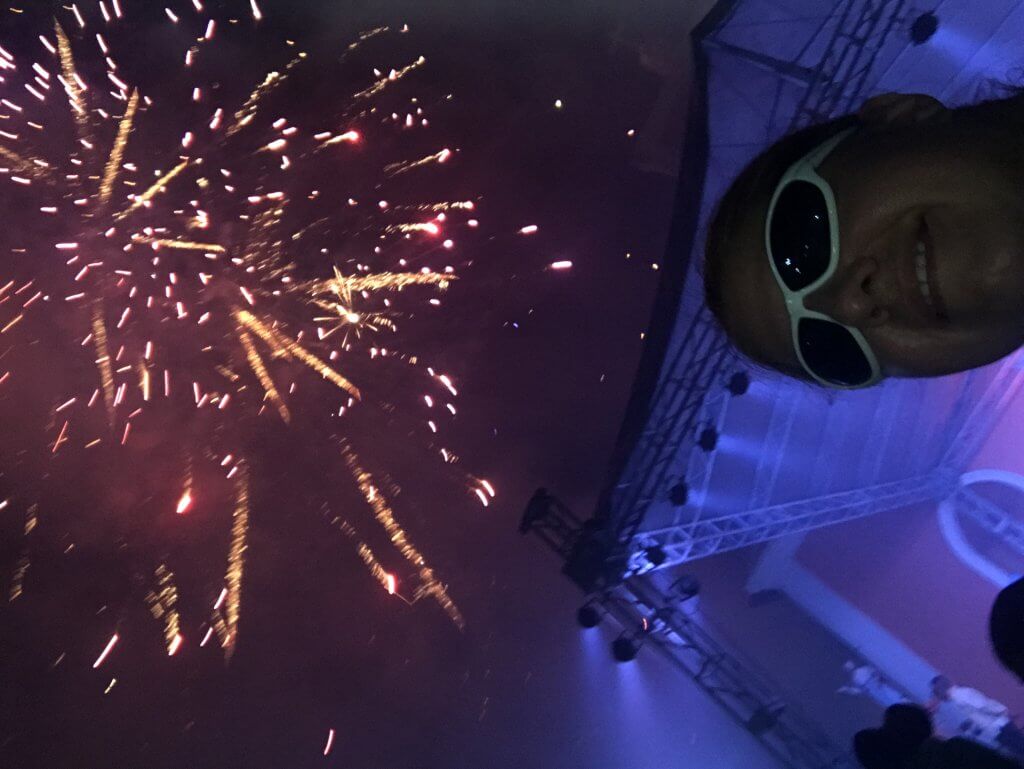
Okay, so we had fun. But what about the work site? I’ll be honest: I was nervous about it. It’s one thing to go down for a week and volunteer with Random Acts. This was different. Going in, everything was working against me: I was injured, I was physically weaker than the workers themselves, I didn’t speak the language… the list went on.
In the end, the work ended up being more fun than the celebrations.
We began our duties at the metal-bending station, where we shaped metal bars and assembled rebar for weeks. The man lucky enough to be put in charge of us, Bladimir, became a fast friend, even though I couldn’t understand a word he said, or vice versa. Most days, the music he played while he worked could be heard throughout the site, and he often serenaded us with one song after another. It was through his music that I began truly learning Spanish. One of my fondest memories of the trip happens to be when we sang a song called Cuando Quieras back and forth to each other on the last day. I swear I saw a flash of pride in his eyes when I finally started singing in his language.
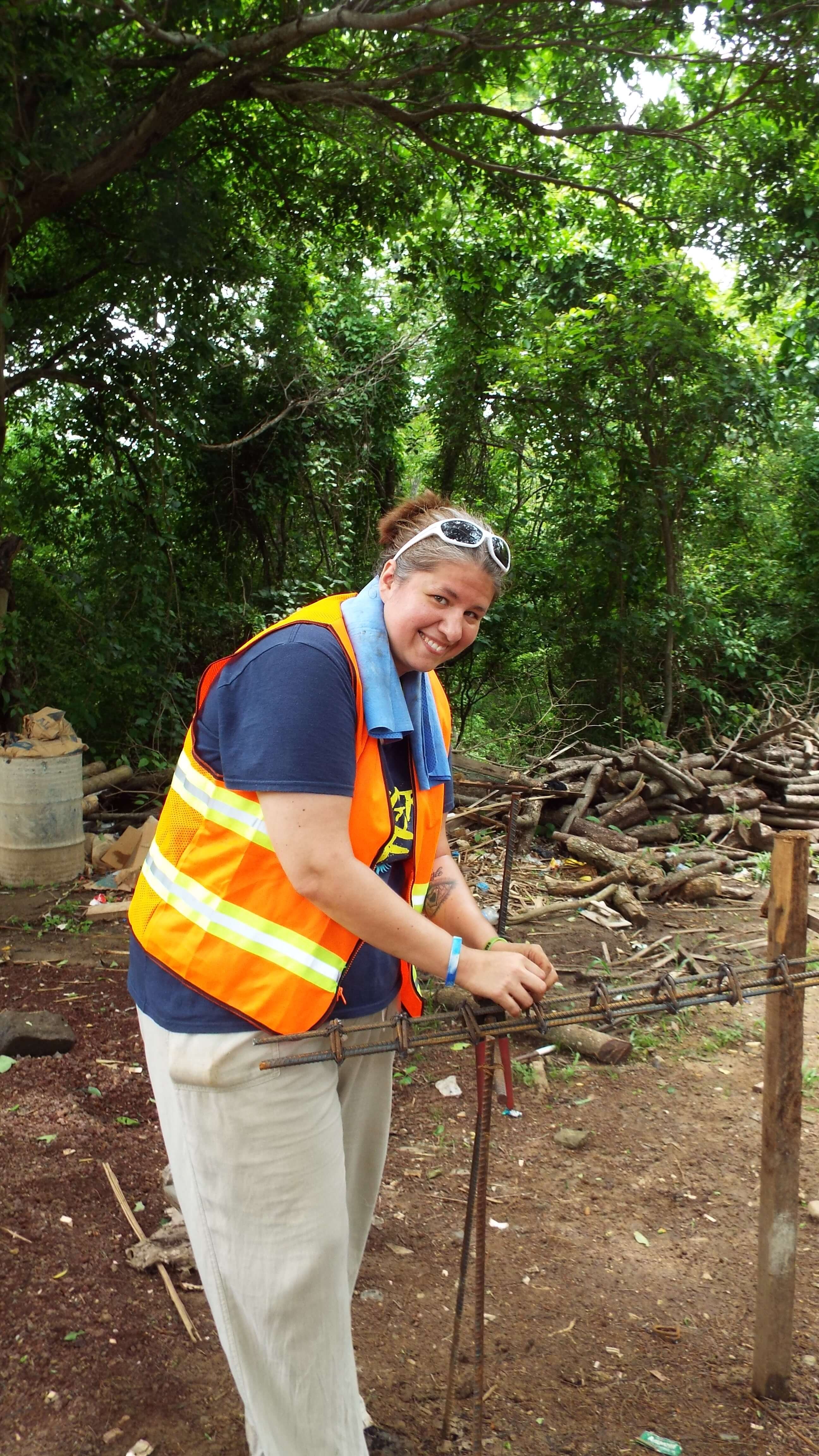
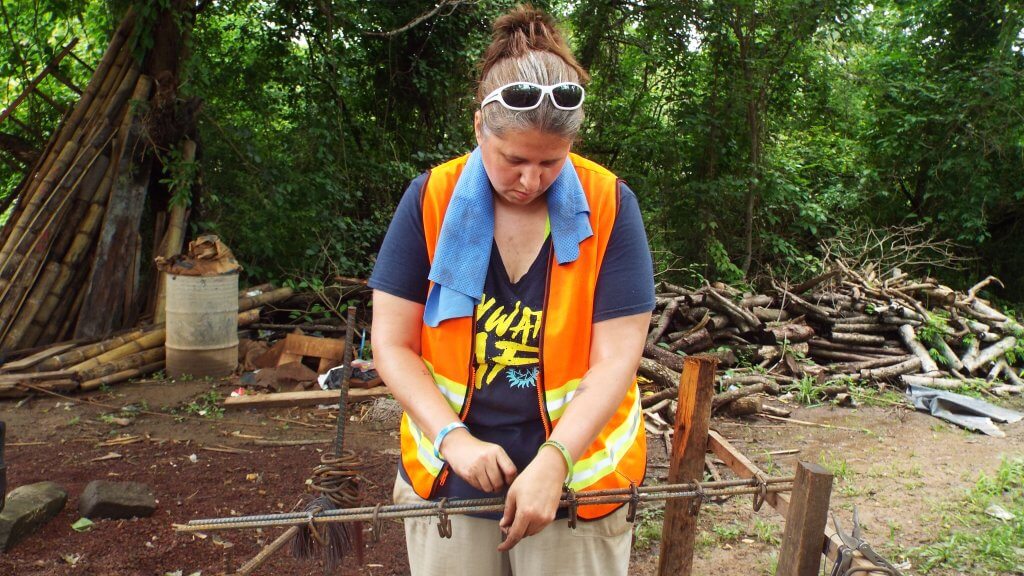
A few weeks into the trip, we moved to the task of cleaning and sealing bamboo. It was around this time that another worker, Maynor, told us that it was very important to him to learn English. He had worked near us the whole time, but had barely spoken. Suddenly, everything shifted. We began pointing to objects, I would say “Como se dices?” (“How do you say… ?”), and he would reply with the Spanish word. I would follow it with English.
The first word he ever taught me was “lija”, which means “sandpaper.” A week or so went by, and we effectively learned how to talk about sandpaper, wire brushes, soap, foam, buckets, and so on. Somewhere during that time, we became friends. Our topics of translation stopped being just about construction materials and started being about our lives, our beliefs, the things that move us, and the things that scare us. We broke the barrier. We did something that logistically we never should have been able to do… we truly bonded. It’s funny—when it takes so much effort to talk to someone, the things you choose to say start to matter more.



While we were there, we also attended a half day of school at the high school that we—and all the Random Acts donors—are helping to build. We saw students learning genetics and algebra and social sciences. And we watched them learn English.
Reynaldo, the aforementioned English teacher, became a fast friend as well. As it turns out, not only could he lead us through the party to end all parties, but he was an incredible teacher too. He taught the students empowering words and phrases in English, like “I am a powerful girl” and he shared with us that he was there because of the students’ passionate desire to learn. He himself had been a student of the Free High School, after all. I was an incredible experience to see the whole thing come full circle.
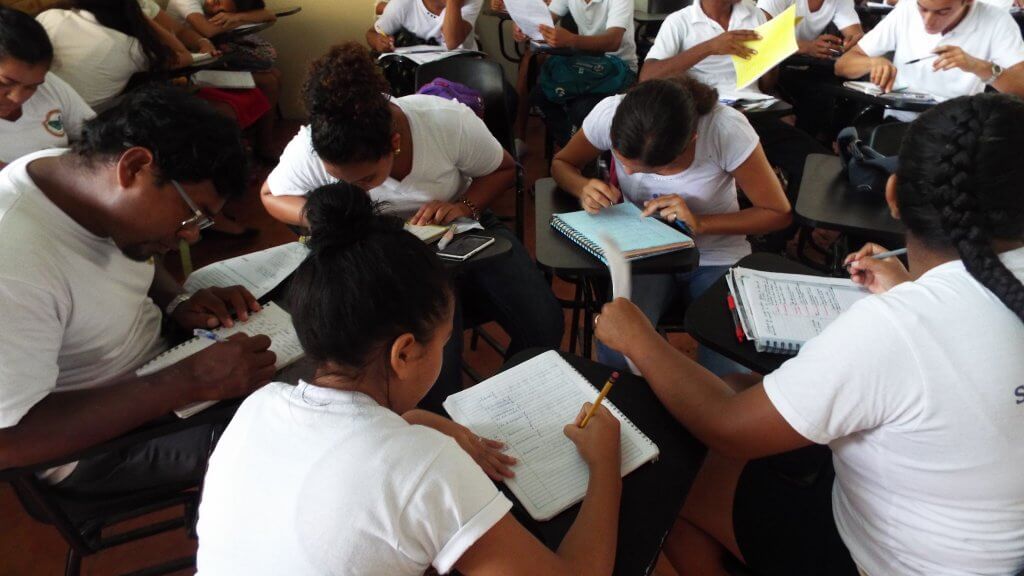
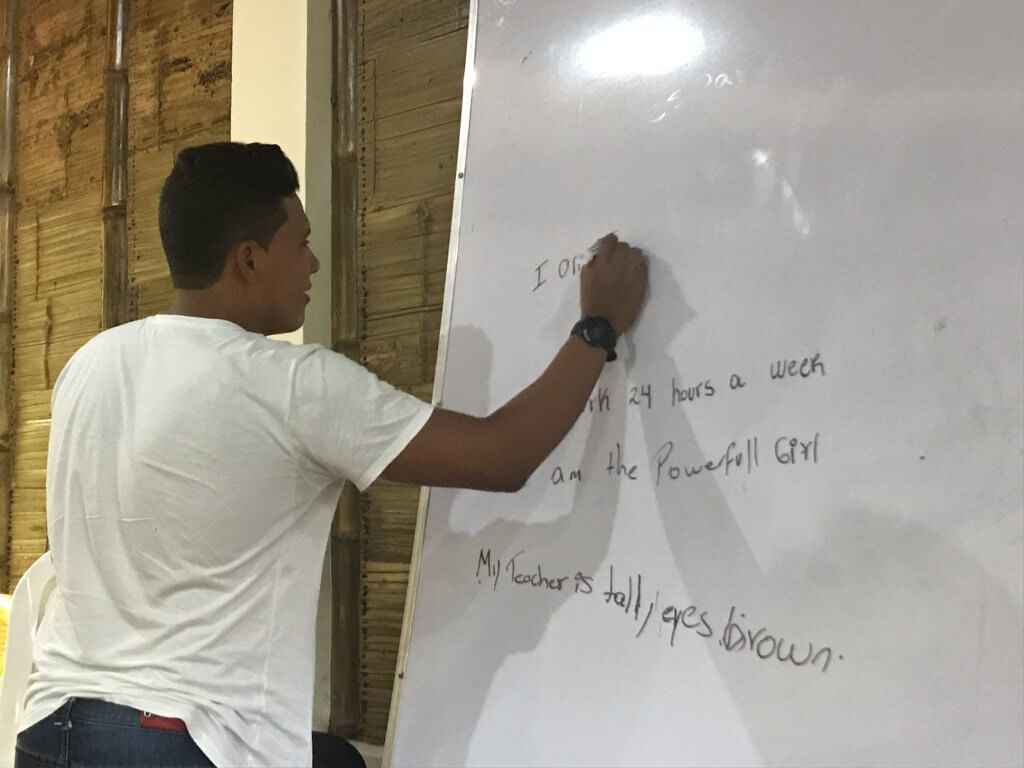
During our last weekend in Nicaragua, we decided to visit the island of Ometepe. Fellow Dreams 2 Acts volunteer Heather Fath-Azam was in town to visit, and thanks to her recommendation, we booked a hotel for the night and the three of us hopped on a ferry across 110 miles of Lake Nicaragua.
Our second stop on the island was a place called Ojo de Agua, or “Eye of Water.” It’s a small natural spring in the middle of the rainforest that has turned into a popular location. According to locals, you can add five years to your life just by visiting. While we were swimming that day, our attention became fixed on a group of high school visitors, who spoke English. There was a rope suspended across the water, and they were each attempting to cross it. They were loudly cheering for each other. A lot of shouts of “You can do it!” and “I believe in you!”
Soon, a group of locals joined in. In time, they were all trying to cross it together—another language barrier broken. I stood in that water and just watched in awe at the genuine faith people had in each other, whether they knew each other or not. As we were leaving, we found out that the group of high school students had also just met. All strangers. From different countries. Lifting each other up and acting as one.
Life seemed so simple in that moment.
By the following Tuesday, it was time to go. We emptied our apartment of food and toiletries and supplies that we wouldn’t be bringing home, and we took them to the campus site. We decided to order pizzas for the workers, as a thank you for their patience and kindness over the preceding six weeks, and, as the work day began to close, they went through the boxes of things we had brought.
I will never forget the joy on the faces of this group of men in their 20s, 30s, and 40s tasting Teddy Grahams for the first time, or their delight when they dipped them in peanut butter. We taught them about bar soap, cold compresses, hand sanitizer, and knee pads. Bladimir was given a backpack, which he had been admiring for quite a while. The image of him in the backpack, holding an umbrella he had also been given, is something I’ll never forget.

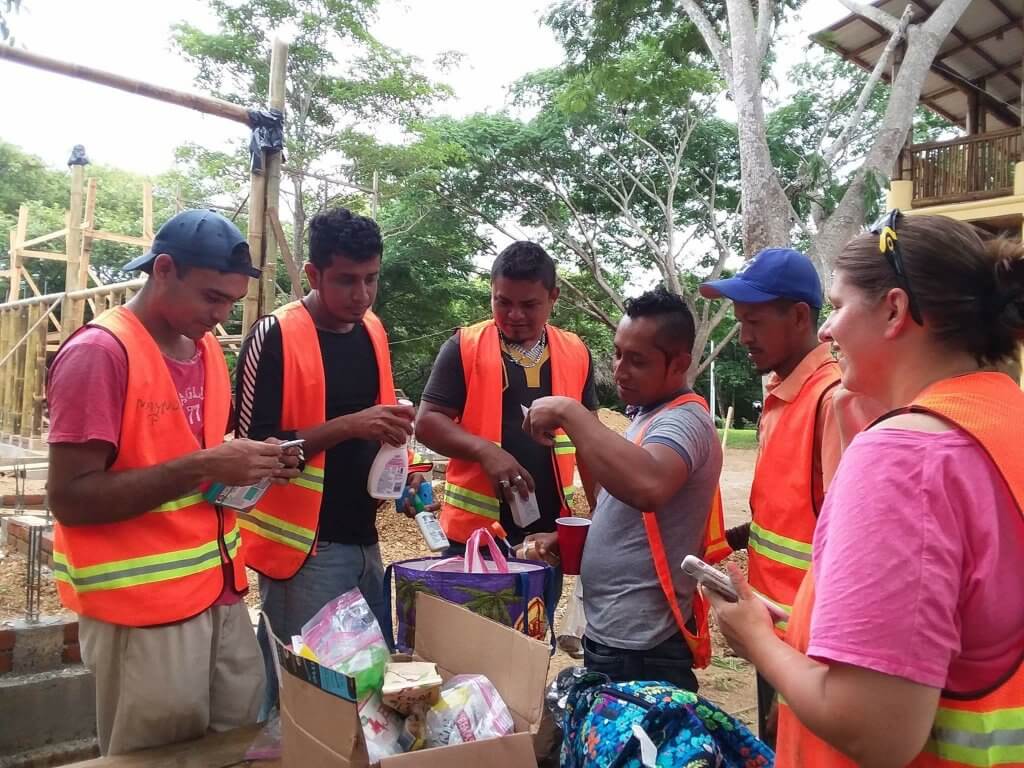

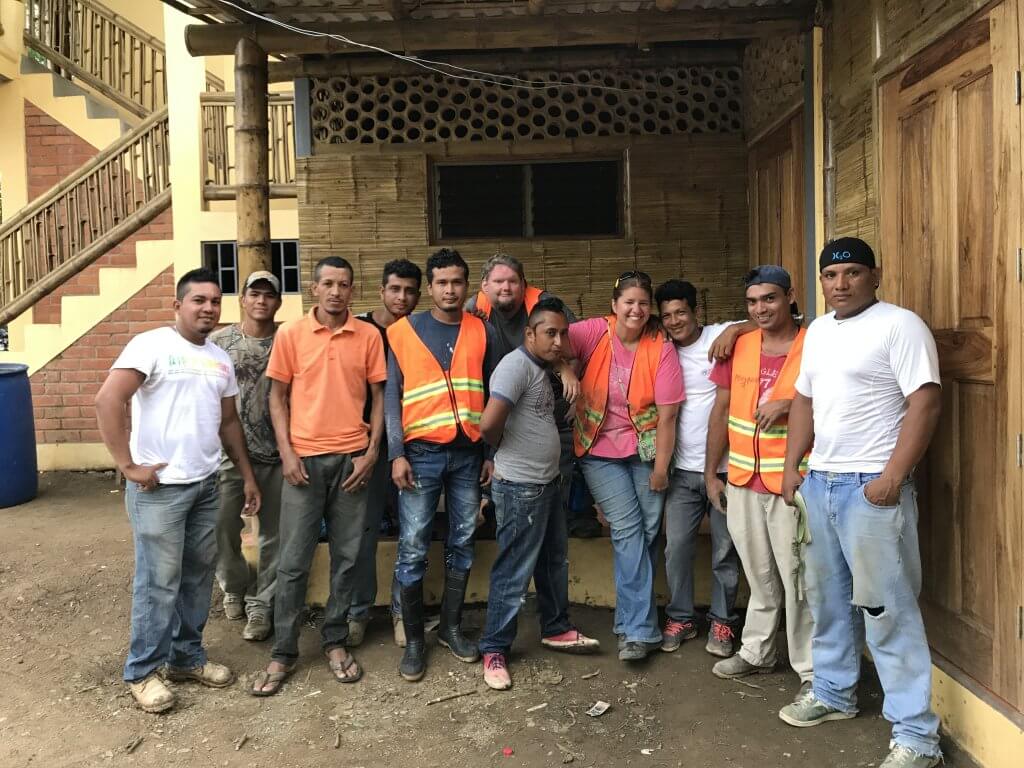
The guys asked for this picture. It may be my favorite photo of all time.
In the end, I found more than a construction project in Nicaragua. More than a school. More than a beautiful bay. I found myself. I found that thing that ignites my soul, and I’m going to follow it.
I’m relocating to San Juan del Sur on August 15. I can’t wait to continue to share the passion of the Nicaraguan people with you—and how it intertwines with my own. Nicaragua is full of people who are striving for more than themselves. They’re also striving for each other and for all those they encounter.
It’s an inspiring thing to witness.
